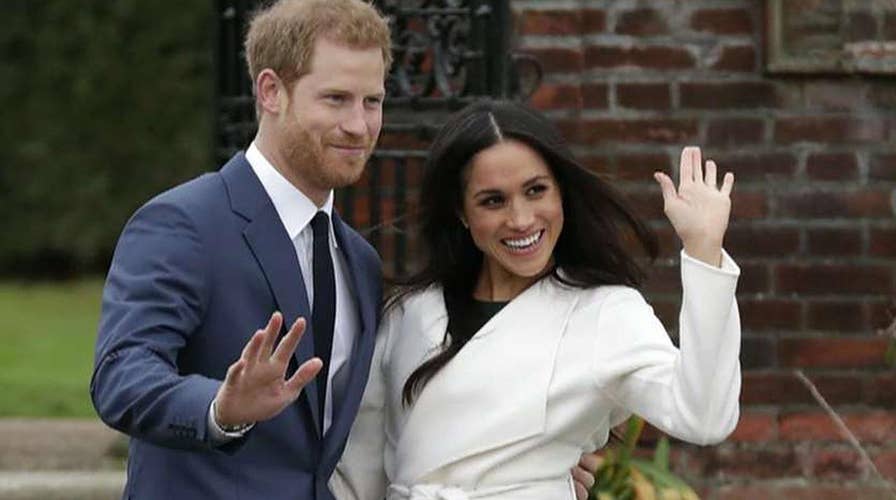The following is an excerpt from “The Meghan Factor: A Royal Expert’s Insights on America’s New Princess – and How She Could Change the Windsor Dynasty Forever.”
Is it an exaggeration to describe Meghan’s impending arrival on the balcony of Buckingham Palace as a potential earthquake? Not if you recognize that the Windsors, for all their impressive titles, crown jewels, castles, palaces, estates, artwork, bodyguards, helicopters, and armies of staff, are actually surprisingly insecure. Perhaps it’s because they know that almost all these trappings on which their special status depends are held in trust for the people over whom they have been set. Even the assets they might be entitled to call their own could be seen as fortuitously acquired rather than earned.
The knowledge, even subconscious, that all these tangible indicators of their royalness could be taken away or, almost as bad, carelessly lost through miscalculation, would shake the self-belief of a dynasty even as outwardly self-assured as this one. It’s worth noting that one of the very rare occasions on which Elizabeth II was seen to shed a tear in public was at the decommissioning of the Royal Yacht Britannia, a royal asset of unsurpassed elegance and charisma, axed by the Ministry of Defence as a cost-saving measure.
Add the amplifying effects of a modern news media whose pliability must constantly be repurchased through a complex system of trades and favors, and then add the online anarchy of social media that picks the scab off every rumor and defies any traditional form of control. Pretty soon the survival odds for the world’s last remaining major monarchy begin to look rather less impregnable.
Then add the unimaginable tectonic shift that will follow the not-far-distant end of Elizabeth’s reign, followed by the no less unsettling implications of the coronation of King Charles and Queen Camilla, and the odds look shakier still.
Meghan and Harry may, in constitutional terms, be strictly irrelevant. They will never ascend the throne and their public function, insofar as they have one at all, is to support the crown...and avoid bringing it into disrepute. It’s a delicate structure—a democratic monarchy that has taken centuries to reach its current, finely-balanced state of broad public approval. For Meghan and Harry everything else, even developing a globally acclaimed portfolio of irreproachably good causes, is superfluous.
Bottom line: the monarch's job is to exist, preferably without rocking the constitutional boat. And if in the process, they gently inspire us to do more and better with our own, then they will probably be treated with respect and remembered with affection, far into the future.
That’s not to say that earning a reputation as a selfless, inspirational royal Mother Teresa-figure would be a waste of time. The warm-glow effect of public good works has long been recognized as valuable evidence of royalty’s fundamental worth, whatever their day-to-day missteps. Presumably, that’s why the decision was taken to bind Meghan and Harry into the “Fab Four” grouping of the Royal Foundation, alongside William and Kate.
This might even be seen as an act of generosity by William, whose royal destiny is very different from that of his brother. In fact, protection of that destiny might have argued for using Meghan’s arrival as an opportunity to spin off the junior members of the band, preserving for William and his fast-growing children the option of a closely controlled charitable repertoire that kept to the safety of the middle of the road. After all, monarchs are seldom executed for being boring.
High-profile support of uncontroversial causes will see them through the lean times of public disapproval and a reputation for consistent, low-key hard work will definitely help when the cost of royal jets/holidays/protection officers and all the other perks is being debated in Parliament and in the media.
It’s at that moment that royal people’s avoidance of controversy can be their lifesaver. Because if they have unwisely taken positions on matters of public policy— especially if in doing so they have caused or deepened public discord—then they will have betrayed their primary constitutional function, which is to act as a non- political focus of national unity. They will thus have undermined the very purpose for which they exist and in return for which they are allowed to live lives of such privilege and influence.
In other words, for a minor royal figure to undertake very few charitable engagements might not do the House of Windsor very much good but, beyond a little media grumbling, won’t cause it irreparable harm either. But think of the alternative: the same could definitely not be said if he or she championed causes that, whatever their ostensible good intentions, were believed to inflame national divisions.
Bottom line: the monarch aside, it is no part of royalty’s remit to save the world or anything in it. Or preach at us, or admonish us, or signal any fashionable virtue. Their job is to exist, preferably without rocking the constitutional boat. And if in the process, by the way they lead their own lives, they gently inspire us to do more and better with our own, then they will probably be treated with respect and remembered with affection, far into the future.
